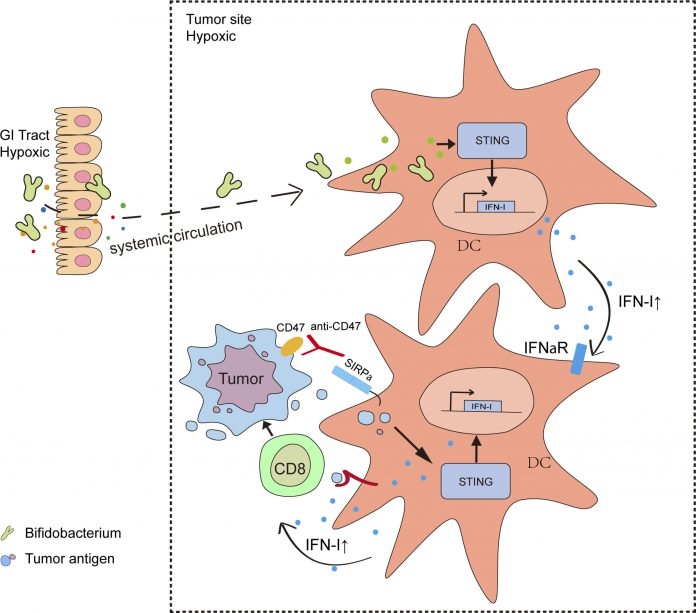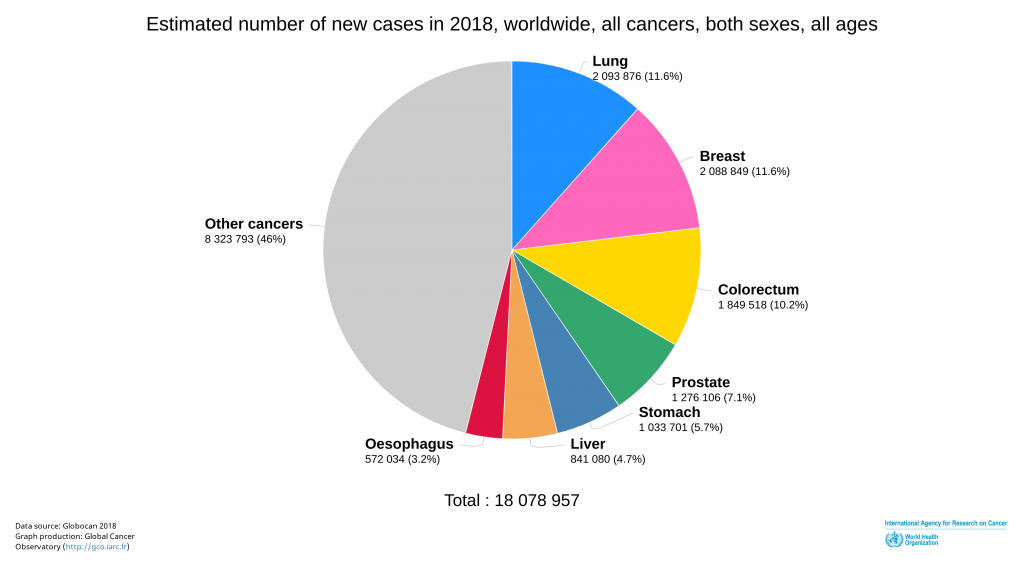
According to the World Health Organization (WHO), cancer is the second leading cause of death globally and, accounted for an estimated 9.6 million deaths in 2018. When we think of cancer treatment, we think of radiation and chemotherapy but, never does the word bacteria enter our mind. The researchers at the University of Texas Southwestern Medical Center and University of Chicago want to change these thoughts. According to the study published in the Journal of Experimental Medicine (JEM), gut bacteria called Bifidobacteria might boost a cancer patient’s response to CD47 immunotherapy. The research team was led by Yang-Xin Fu at the University of Texas Southwestern Medical Center and Ralph R. Weichselbaum, co-director of The Ludwig Center for Metastasis Research at the University of Chicago.

What is immunotherapy?
The national cancer institute defines immunotherapy as a type of therapy that uses substances to stimulate or suppress the immune system to help the body fight cancer, infection, and other diseases. Monoclonal antibodies, Chimeric antigen receptor (CAR) T-cell therapy and immunomodulators are just a few types of immunotherapy that are used to treat cancers.
CD-47 is a surface protein expressed on many cancer cells and acts like a ‘don’t eat me’ signal for the macrophages, thus helping the tumor evade the body’s immune system. CD-47 immunotherapy aims to block this protein thus causing antibody-mediated phagocytosis of cancer and activation of cancer-specific lymphocytes.
Tumor-bearing mice were given anti-CD47 treatment after killing off their gut bacteria using antibiotics. They were found to be unresponsive to the anti-CD47 treatment. However, the anti-CD47 treatment was found to be effective when given with bifidobacteria, a healthy bacterium found in the guts of humans and mice.
Bifidobacteria were seen to migrate into tumors, where they appeared to activate the stimulation of interferon genes (STING) pathway. This is an immune signaling pathway that causes the activation of immune cells. These activated immune cells can attack and destroy the surrounding tumor when combined with anti-CD47 treatment.
This research offers an insight into the effects of bacteria within tumors and helps explain the differences in response to immunotherapy among patients.
References:
Yaoyao Shi, Wenxin Zheng, Kaiting Yang, Katharine G. Harris, Kaiyuan Ni, Lai Xue, Wenbin Lin, Eugene B. Chang, Ralph R. Weichselbaum, Yang-Xin Fu; Intratumoral accumulation of gut microbiota facilitates CD47-based immunotherapy via STING signaling. J Exp Med 4 May 2020; 217



